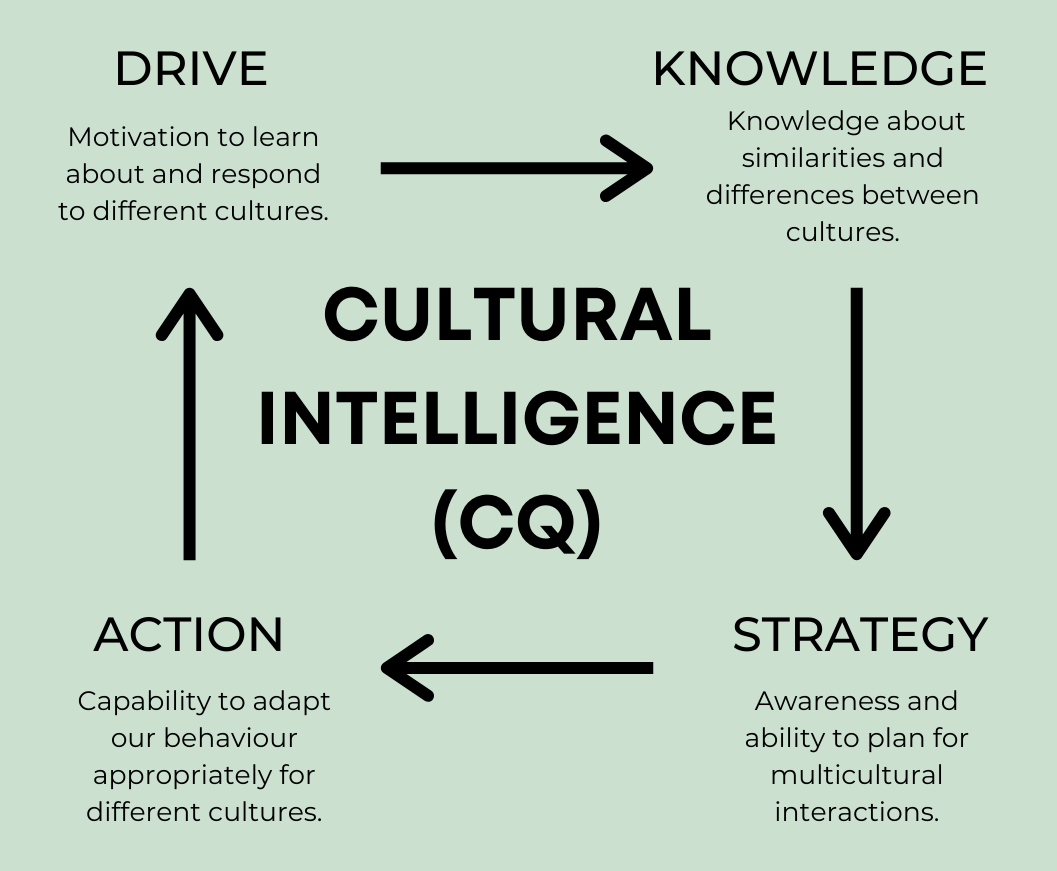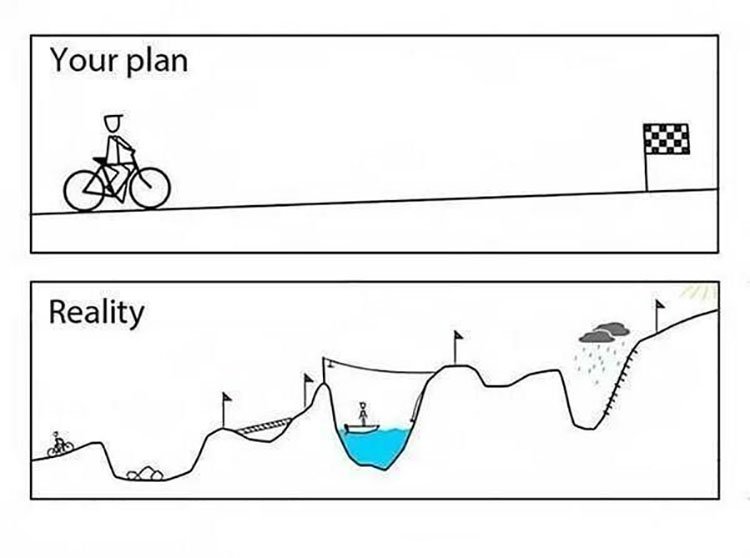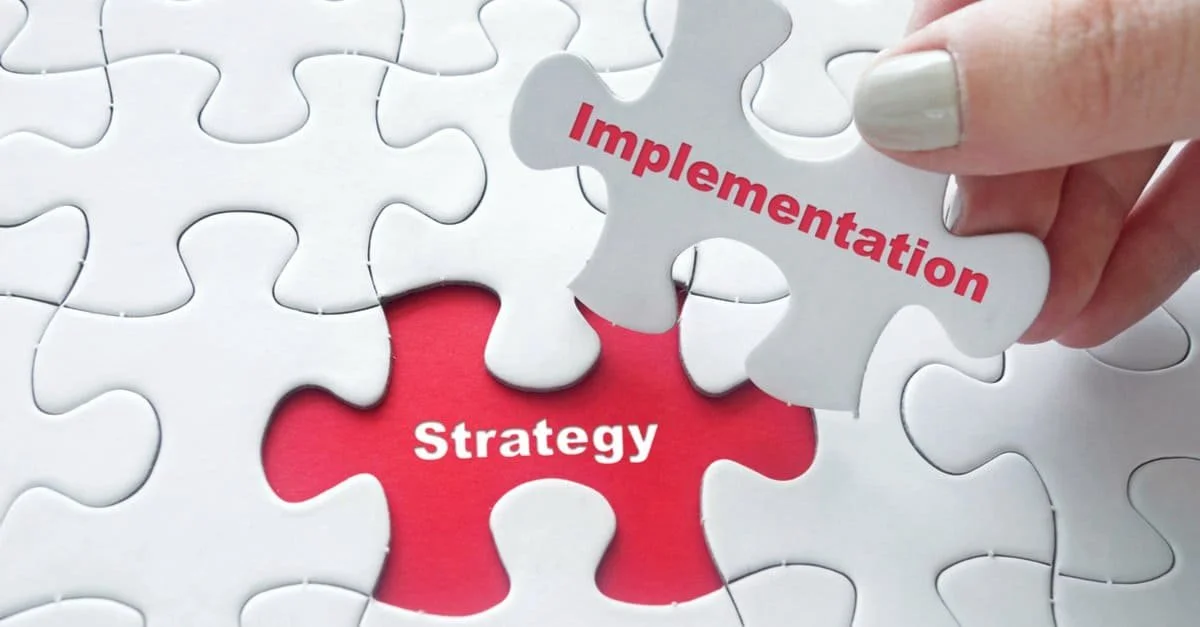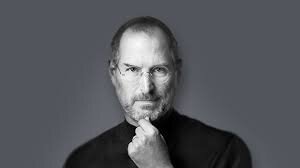Leadership today is not just about vision, strategy, or performance metrics, it’s about presence. And not just the kind that shows up in meetings or quarterly reports, but the kind that’s felt by the people around you. Authentic leadership is not about being universally liked, it's about being consistent, grounded, and brave enough to embody values even when they challenge the norm.
I think in transformation contexts where uncertainty is high and morale can be fragile this kind of leadership becomes critical. It stabilises teams without sugarcoating reality. It encourages innovation without glossing over fear, and it helps people stay resilient through the messy, human process of change.
Seeing work as a game
A game, at its core, is a structured interaction involving multiple players, a set of rules, and potential outcomes. In any situation where we face decisions, we can frame it as a game to gain clarity and strategy. Games exist in every strategy, whether we acknowledge them or not. Here are a few universal truths about games:
You don’t need to enjoy a game for it to still be a game.
You’re often playing a game without even realising it, and recognising it as a game can significantly improve your ability to navigate it.
The outcome of a game isn’t necessarily tied to how much you want to win as desire alone isn’t enough.
Some games are easy to step away from, while others are perpetual and ongoing.
Importantly, no game stays static. The act of playing inherently evolves the game itself.
Viewing a project or a challenge as a game offers a unique advantage: it allows us to depersonalise our work. This perspective can reduce emotional entanglement, foster creativity, and encourage a more strategic mindset. I think by recognising the "game" in what we do transforms how we approach decisions and adapt to changing circumstances.
Translating content
How do you translate content into practice in a scalable way?
Sometimes by making small optimisations you can substantially increase your revenue. I think the following questions are important to ask yourself before you launch your growth strategy:
What do I know?
- Identify, assess and list all the relevant knowledge and skills you have regarding the content you want to apply.What are my resources?
- Identify the resources at your disposal, for example, financial resources, time, mentors, etc.What’s my experiment?
- Plan and design your experiment by creating a hypothesis, defining your method, and setting measurable goals.How do I move forward?
- Based on your experiment's results, create a detailed action plan which should include timelines, responsibilities, and key milestones.And how can I do that at scale?
- Determine how you will expand by looking at things like your resources, challenges, and strategies for maintaining quality and efficiency at a larger scale.
Contact me via email for a deeper dive into your growth strategy.
Think before acting
Cultural intelligence (CQ) is an essential capability for inclusive leaders and in building successful relationships. Those who learn how to connect and become connectors will prosper in a connected economy.
““Cultural intelligence: an outsider’s seemingly natural ability to interpret someone’s unfamiliar and ambiguous gestures the way that person’s compatriots would.””
What are the 4 components of cultural intelligence?
The framework for cultural intelligence consists of four parts: knowledge, strategic thinking, motivation, and behaviours.
CQ Drive: The motivation to learn about new cultures.
CQ Knowledge: Understanding how cultures influence what people say and do.
CQ Strategy: Having a plan to respond to cultural differences.
CQ Action: Behaving in culturally sensitive ways, including handling any difficulties that arise.
Silent anticipation
Being both empathetic and strategic in your approach to communication is akin to playing a game of chess where you're thinking several moves ahead. It involves considering not only where you want to ultimately arrive in the conversation but also what specific outcomes you aim to achieve. I think the person asking the questions is the person in charge of the conversation, as by guiding the dialogue through thoughtful inquiries, you can influence the direction of the discussion and ensure it aligns with your objectives. Just as a chess player anticipates their opponent's moves, a skilled communicator anticipates the responses and reactions of the person they're engaging with. In addition to asking the right questions, it's crucial to recognise that clients often convey their thoughts and feelings through storytelling, and as a result, effective listening becomes a critical skill. This entails not only hearing the words being spoken but also paying close attention to emotional cues and non-verbal communication, for example, observing body language cues, such as leaning forward in interest or using expressive hand gestures, can provide valuable insights into the client's engagement level and emotions.
Uncovering problems
This idea aligns with the principles of marketing, which focus on understanding consumer needs, wants, and desires, and then tailoring offerings to meet those expectations. Marketing plays a crucial role in bridging the gap between what is produced and what is desired by consumers. By identifying consumer preferences, conducting market research, and utilising various marketing techniques, organisations can effectively communicate the value of their products or services to potential customers. This process involves crafting messages, creating branding strategies, and utilising persuasive techniques to influence consumer perceptions and ultimately drive demand.
A reduction in price
Human beings in general are allergic to change, regardless of whether it’s in their best interests. Strategic optimisation is more important than ever, especially in these turbulent times. The word, optimise is derived from the Latin word “optimus”, which simply means 'best.' Optimisation doesn't mean doing more for the sake of doing more, it means doing less, so what you do is full of care and attention. Strategies are designs based on the operating model, so when the operating model is outdated because of internal or external factors, execution will fail and not yield the desired results. Therefore, optimisation isn't the problem, we are. Two of my children have their birthday’s this week, so I am giving you or your organisation a gift. Contact me via e-mail for a free one-hour discovery session, use the discount code: “birthday”.
Smooth paths are seldom seen
The key to success is to get clear on what you want, create a pragmatic plan to get it, and then execute daily on that plan without getting distracted. Goal setting and planning gives you the ability to put your blinders on, not look at what others are doing, stay in your lane, and keep executing towards your goals. Contact me via e-mail and let’s build an action plan to meet your goals together as the path between strategy and execution is seldom without challenges.
Scaling up good practices
I think that to grow and improve your skills, you must have the courage to face your fears. This leads to fostering co-responsibility and creating spaces to bridge differences, for example, Japan has an ageing population and a fascination with technology, and this has led to the development of companion robots. Sales professionals must allow their clients intellectual oxygen to express what’s going on in their heads. Today, it is not enough to say in words that your organisation makes a difference. We want a visible proof of the responsibility an organisation says it takes. Contact me via e-mail for a workshop regarding your organisation’s approach and execution strategies.
You can't have one without the others
There are two things that you have to do in order to grow your business:
You have to have a really good strategy based on your understanding of the market and competition, future technology, and anything else that is happening in your landscape.
Execution and implementation. I think executing your strategic plan is as important, or even more important, than your strategy itself. Implementation is the process that turns strategies and plans into action in order to accomplish strategic objectives and goals.
Strategy, implementation, and execution are synonymous and we need all three if you are to succeed as an organisation or business entity. One is about the plan and the others are about how to get the plan done, I don’t think you can have one without the others.
Sharing information across your campaigns
The idea that we can look somebody in the eyes and engage with them is scary for many people. When you work in sales and marketing this behaviour is the bare minimum of expected of you. Many organisations spend loads of money marketing their various products yet often their marketing strategies aren’t connected to one another, instead they use isolated campaigns without any formal unities. Why are they doing that? I think you should start correlating all of your marketing activities by streamlining your marketing strategy and messaging, as this will increase their effectiveness and put you in the spotlight for potential customers. Contact me via e-mail if you would like an evaluation of how to create a more unified marketing message for your organisation.
The harder you work the better you become
Business is a vehicle for self-expression, for dreaming about creating the future we desire, for accomplishing together what we cannot do alone and for creating extraordinary amounts of value. Business is far more than a profit machine and can be the primary vehicle for building a better world, if we appropriately respect and care for people. You will need to design a strategy that attracts the target market in the right way, and you will need to immediately have the right mix of products and solutions developed so that they can engage you immediately.
We are not in a “You” economy, it’s a “We” economy. We are sharing, we are growing, we are expanding, we are finding ways to add value. The secret to business is to think about others, not about yourself! I think a meaningful life is serving something greater than yourself. When we are excited about something, the first thing we want to do is share it with our loved ones. A lot of people think you have to get it right before you start, the most important thing is to get started and begin learning as quickly as you can.
The customers are the marketeers
Each industry and every company have a different approach to marketing. Here are a few key questions I ask to help my clients to focus on their “new” marketing strategy:
What customer problem do you uniquely solve?
Who is your customer?
Where are those customers?
What makes you relevant to those customers?
How do you communicate your relevance?
How will you continuously measure and adjust?
Look and you will see
I’m pretty good at not carrying regrets around and I choose to be happy. I no longer allow negative things in my life to spoil the good things. I have been described as a skilled strategic developer. My things are planning from conception to implementation whilst defining the corporate mission, objectives and branding. How can I get to the heart of the change I am trying to make in the world?
It matters to me that human beings step up and speak their truth. It’s important to me that we look each other in the eyes and take advantage of this moment we have, as in reality no one knows how long we will have these opportunities. I think all of us are more powerful than we can even imagine and all of us have the ability to make things better.
How does what we do change the lives of our customers?
Running a business is very hard. You have to stay true to yourself, your passion and be consistent. You can reduce stress by not having strong opinions on subjects outside of your expertise. Today, customers expect you to know them and know what they want, in the moment.
Contact me for coaching, consulting, workshops or lecturing via e-mail and let’s arrange a non-binary virtual meeting to discuss the opportunities.
“Strategy is a commodity, execution is an art. - Peter Drucker”
People with passion can change the world for the better
You can go to the best education facilities and spend years trying to learn about marketing or you can spend 7 minutes watching this Steve Jobs presentation from 1997.


















